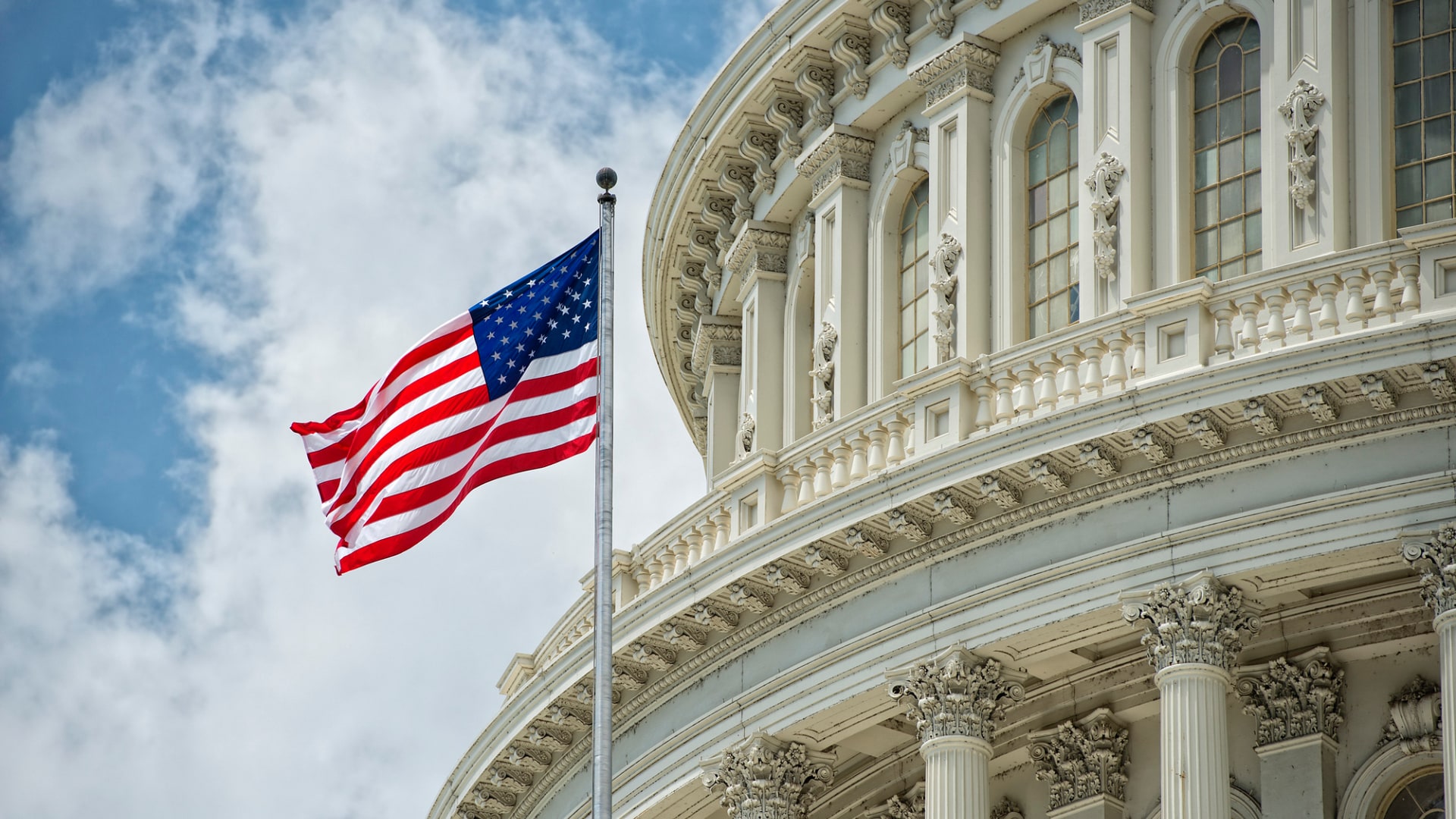The News: Colorado congressman Ken Buck has partnered with Rhode Island’s David Cicilline to form the bipartisan Congressional Antitrust Caucus aimed at curbing perceived anti-competition and anti-free speech activities by major Big Tech corporations. They have vowed to keep a focus on reforming U.S. antitrust laws to curb the power of Amazon, Apple, Alphabet’s Google, and Meta platforms. Read more from Bloomberg.
Bipartisan Lawmakers Launch the Congressional Antitrust Caucus Targeting Big Tech
Analyst Take: Colorado Republican Ken Buck and Rhode Island Democrat David Cicilline recently announced the formation of the Congressional Antitrust Caucus aimed at curbing perceived anti-competition and anti-free speech activities by major Big Tech corporations. The Congressional Antitrust Caucus was launched in an effort to keep the momentum going for antitrust legislation targeting the biggest tech companies, which almost passed last year.
In a joint statement, the two congressmen said the Congressional Antitrust Caucus will be committed to holding Big Tech and monopolies accountable, promoting healthy competition in the economy, and advocating for hardworking and law-abiding consumers and business owners.
“The Congressional Antitrust Caucus will give members of Congress who care about holding monopolies accountable and encouraging competition in the Big Tech marketplace an opportunity to bring competition policy to the Congress and to the minds of the American people,” Buck said in a statement.
“This is a critically important policy area and one where thoughtful, bipartisan work can deliver results. By creating this caucus, we are showing the American people that we are in Washington to deliver results and that both sides of the aisle can come together to fight against these dangerous monopolistic corporations.”
In an interview with The Washington Post in January, Buck talked about his new book “Crushed: Big Tech’s War on Free Speech,” and talked about plans to target Google and Facebook’s ad businesses and dominant app stores. I can’t help but wonder how much of this is posturing to drive book sales.
“I’m very concerned about tech companies having so much influence on what information people receive, especially political information,” Buck told journalist Cristiano Lima. “I wrote this book to explain my concerns to a conservative audience. The Democrats are very concerned about dangerous speech on the internet and the Republicans are very concerned about censoring speech. I think there’s a sweet spot there that the two sides will come together and agree on.”
Cicilline in a statement said the Congressional Antitrust Caucus will “ensure that our critical work to rein in Big Tech continues.”
The Subcommittee on Antitrust, Commercial, and Administrative Law released a 450-page report last year on its investigation into Big Tech. The report stated that Amazon, Apple, Facebook, and Google had misused their power as monopolies, and it recommended changes to current antitrust laws.
While the Congressional Antitrust Caucus does not have the same power as a formal congressional committee, they will hold hearings, support legislation, and educate fellow lawmakers about their views on anti-monopoly policy.
This announcement by the Congressional Antitrust Caucus demonstrates a bipartisan agreement to continue to take on Big Tech. The caucus intends to keep the momentum going for antitrust legislation targeting the biggest tech companies that was in motion over the course of the last year, but which did not pass.
My concern about this undertaking is that sweeping antitrust “reform” is often undertaken by lawmakers with their own agendas (and/or a book to promote). In addition, in far too many instances, these efforts are helmed by individuals who are not always tech savvy, which means that actions that well impact a huge cross section of society are often being put forth by people who don’t have a depth of knowledge on this topic.
I think that there’s a balance between technology driving innovation and providing some guardrails to prevent situations where antitrust is legitimately an issue. The challenge, from a legislative standpoint, is (1) recognizing that and (2) getting the right framework in place – and one that doesn’t inhibit innovation.
Disclosure: Fatty Fish is a research and advisory firm that engages or has engaged in research, analysis, and advisory services with many technology companies, including those mentioned in this article. The author does not hold any equity positions with any company mentioned in this article.
A serial entrepreneur with a tech centric focus, Shelly has worked alongside some of the world’s largest brands to embrace disruption and spur innovation.
- Shelly Kramerhttps://fattyfish.org/author/shelly-kramer/February 28, 2023
- Shelly Kramerhttps://fattyfish.org/author/shelly-kramer/January 25, 2023
- Shelly Kramerhttps://fattyfish.org/author/shelly-kramer/December 1, 2022
- Shelly Kramerhttps://fattyfish.org/author/shelly-kramer/July 16, 2021











